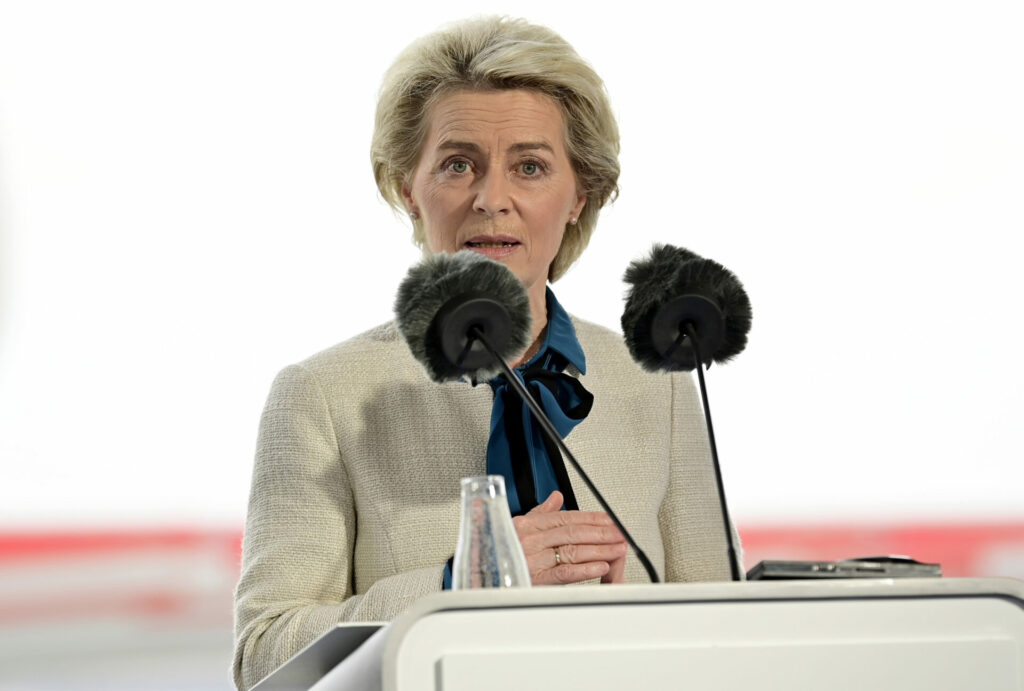European Commission President Ursula von der Leyen has urged European leaders to adopt a four-point plan to confront the "dual challenge" of Europe's burgeoning energy crisis and the impact of the US Inflation Reduction Act (IRA).
In a speech delivered on Wednesday at a European Parliament plenary session, von der Leyen criticised the IRA for potentially "lead[ing] to unfair competition" and "disadvantag[ing] European companies", and claimed that it risks compounding the structural disadvantage faced by European manufacturers relative to American ones at a time when gas prices in Europe are significantly higher than they are in the US.
To address these problems, Von der Leyen proposed "four main strands of action". These include changing EU state aid rules to make state subsidies easier to implement, majorly increasing European investments in renewable energy, making efforts to "further accelerate" the green transition, and "work[ing] with the United States to address some of the most concerning aspects" of the IRA.
Von der Leyen's criticisms of the IRA — as well as her specific policy proposals — echo similar remarks made in a speech delivered in Bruges on 4 December, in which she argued that "the IRA can lead to unfair competition, could close markets, and fragment... critical supply chains" and urged EU leaders to "simplify and adapt our state aid rules".
An 'existential' challenge
Signed into US law in mid-August this year, the IRA is arguably President Joe Biden's flagship legislative achievement. However, it has proven to be enormously controversial on this side of the Atlantic, as the vast majority of its hundreds of billions of dollars in green subsidies are only available for products manufactured in the US.
Such protectionist policies have deeply angered European leaders, with EU Commissioner for the Internal Market Thierry Breton going has far as to suggest that they pose an "existential challenge" to Europe and could even lead to the continent's "deindustrialisation".
In recent weeks, Northvolt (a Swedish battery startup), Iberdrola (a Spanish energy firm), and BASF (a major German chemicals company) have all claimed that they will relocate a substantial portion of their investment or production to the US in order to take advantage of the new US subsidies.
No good options
Exacerbating Europe's difficulties is the fact that it appears to have very few ways of addressing the difficulties posed by the IRA.
Related News
- Transatlantic tensions flare over 'extremely protectionist' US climate plan
- US protectionism poses 'existential challenge' to Europe, say EU leaders
In particular, von der Leyen's suggestion that EU leaders should attempt to persuade the US to alter the text of the IRA would appear to be (at best) highly impractical.
Indeed, even if the EU succeeds in convincing US President Joe Biden to alter the legislation, it is exceedingly unlikely that he will be able to push its amended text through Congress given that his Democratic Party lost control of the House of Representatives to the Republicans in the recent mid-term elections.
Moreover, von der Leyen's suggestion that the EU could respond by introducing subsidies of its own is also fraught with potential difficulties. For not only would such subsidies risk violating World Trade Organisation rules, but they could also pave the way to an economic "race to the bottom" as countries and blocs compete to provide the most favourable conditions for manufacturers.

